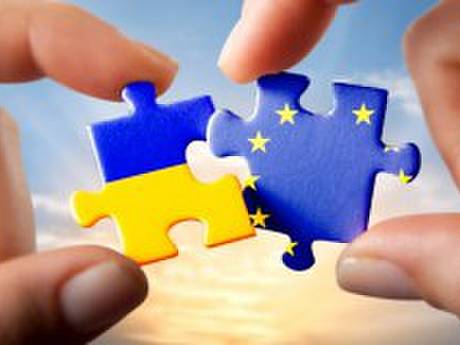
The European market with more than 500 million solvent consumers and huge investment and technology resources is very attractive for Ukraine's domestic producers. At the same time, Ukrainian producers should adjust their goods to the technical regulations, quality standards and other requirements of the European Union (EU) in order to benefit from the launch of a free trade area between Ukraine and the EU from January 1, 2016. Such a step will not only ensure equal competition on the EU market, but also become a significant advantage when domestic goods enter Asia, South Africa and other markets. The process of globalization continues and international manufacturers aspire for the best standards which ensure higher competitiveness, President of the Ukrainian League of Industrialists and Entrepreneurs (ULIE) Anatoliy Kinakh said in an interview to the Era Radio Station.
"When our European partners introduced a trade preferences regime for us, under which a zero customs duty was imposed on Ukrainian goods, we enjoyed a period of euphoria – everyone was hoping that exports would rise significantly. However, it grew by a mere 2.6% in 2014. This index is too small and it proves once again that no preferences guarantee a stable position on the market without deep work on the modernization of domestic enterprises and adjustment to the European conditions," he said.
Kinakh added that Ukraine has to open relevant certification centers and quality laboratories and the country's government has approach the process of streamlining domestic goods with the EU technical regulations step by step.
"They still have not adopted such a program in spite of the fact that uncertainty in this sphere will have a direct impact on Ukrainian goods' competitiveness, development of the business environment and Ukraine's economy in general," the ULIE president said.
The country's economy also has to undergo the adjustment process as long as domestic producers are working in much more difficult conditions than their European partners. This refers particularly to a higher cost of credit resources and difficult access to them – for example, the European Central Bank's discount rate is 0.25%, while the National Bank of Ukraine (NBU) offers 22% – higher energy intensity of production and lower labor effectiveness due to obsolescence and depreciation of equipment.
"For all of the processes mentioned above we need to take systemic measures – adopt and, which is even more important, gradually implement programs for streamlining the national economy to the EU requirements. In addition, we have to stop imitating active work on reforms – it is time to implement them actively. When I talk to our western colleagues from the EU institutions, I can feel their annoyance and tiredness from the slowness of the processes in Ukraine. We must do our best in order to adjust our economy, build favorable investment climate, upgrade our production facilities and become a valuable partner. The introduction of a free trade area is a very good incentive for this," Kinakh said.
All of the measures mentioned by Kinakh were included to the Anti-Crisis Program of Joint Actions of the Government and Businesses which was approved and sent to the country's leadership by the Anti-Crisis Council of Non-Governmental Organizations of Ukraine.